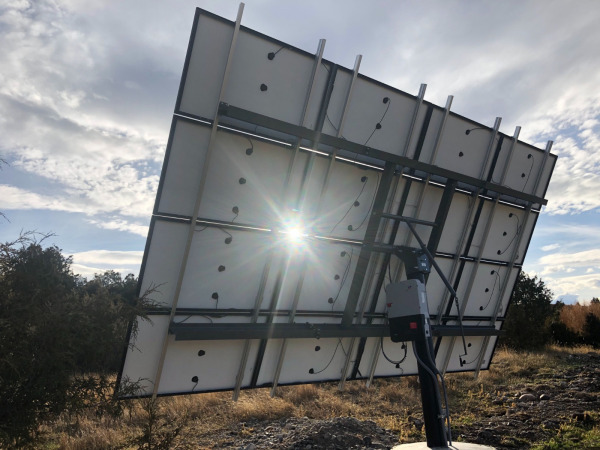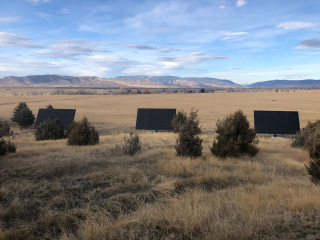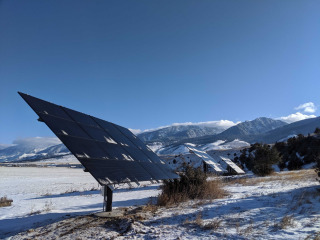Residential Ground Mount
Projects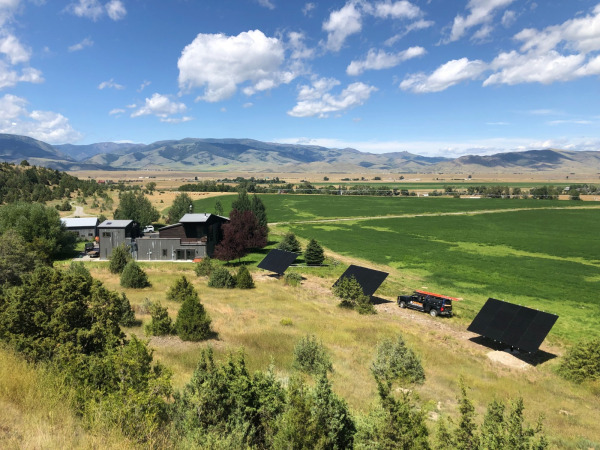
Ground-mounted solar arrays are a great solution when rooftop solar doesn't work out due to available roof space, shading, or simply personal preference. Some of the benefits of ground-mounts are that you can position them for optimal tilt and azimuth rather than being dictated by the existing roof, and they are more easily accessible for servicing, removing snow, and adjusting the tilt. One of the drawbacks is the additional cost of trenching the electrical connection back to the meter, so it is important to compare the costs of both rooftop and ground-mount solar before deciding which is right for your property.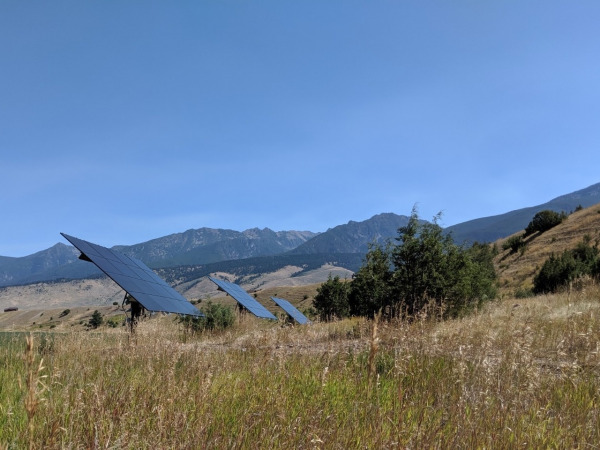
Client Profile
This project is located in Park Electric Cooperative's territory which has a net-metering limit of 15 kW DC. The customer decided to take full advantage of that with a 14.9 kW system that will offset approximately half of the property's electricity use. With ample space to choose from, we positioned the array in a field directly east of the house where there was limited shading. The arrays are facing south and will be set set to a 60° tilt for winter to shed snow and a 40° tilt in the summer for optimal production. The arrays are mounted on MT Solar racking that allows you to easily change the tilt angle throughout the seasons, and are set in a concrete foundation. Each of the pole mounts has a SMA Sunny Boy 5.0 kW inverter mounted to the back with the AC output circuits run through a new trench to the electrical meter pedestal.

Bird's eye view of project
INSTALLED2019
POWER14.9 kW
PRODUCTION20,825 kWh/year
PANELSCanadian Solar 310 Watt Modules
INVERTERSMA Sunny Boy 5.0 (x3)
MOUNTMT Solar
WARRANTY25 Year Power Output Warranty, 12 Year Manufacturer's Warranty
Ground-mount vs. rooftop solar
Ground-mounted solar arrays are a great solution when rooftop solar doesn't work out due to available roof space, shading, or simply personal preference. Some of the benefits of ground-mounts are that you can position them for optimal tilt and azimuth rather than being dictated by the existing roof, and they are more easily accessible for servicing, removing snow, and adjusting the tilt. One of the drawbacks is the additional cost of trenching the electrical connection back to the meter, so it is important to compare the costs of both rooftop and ground-mount solar before deciding which is right for your property.

Pole-mounted arrays with adjustable tilt angle

